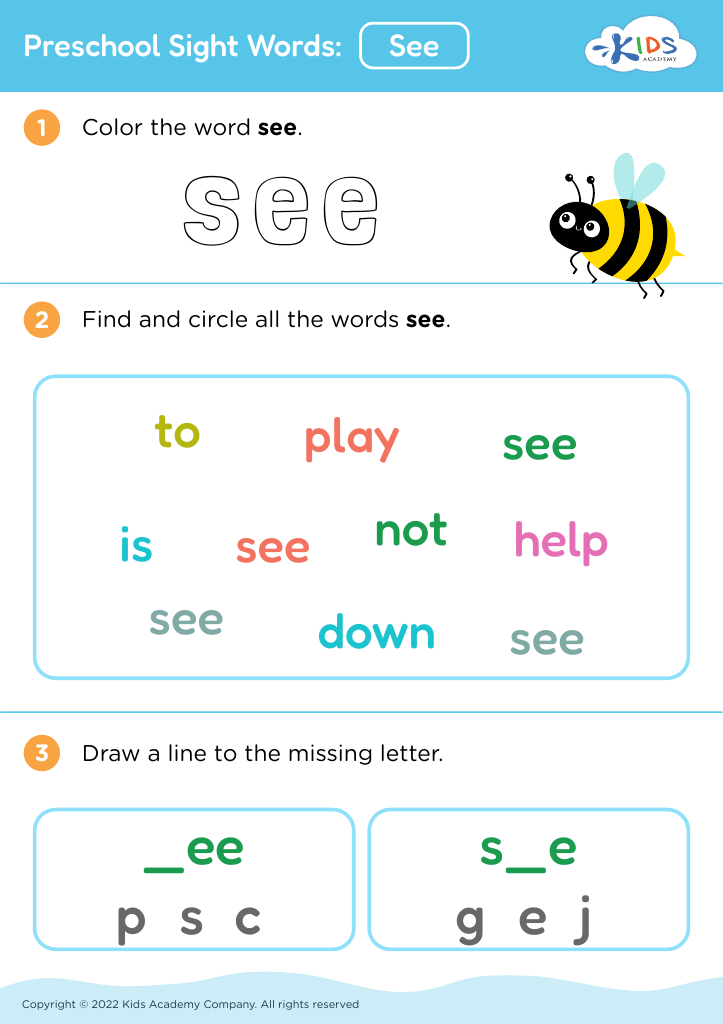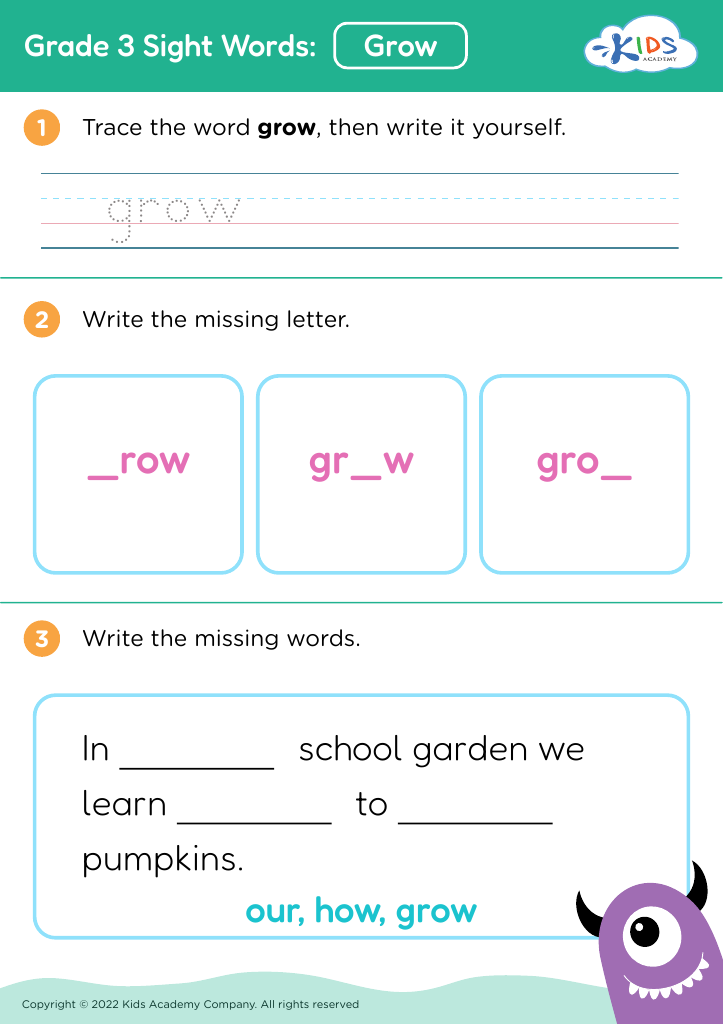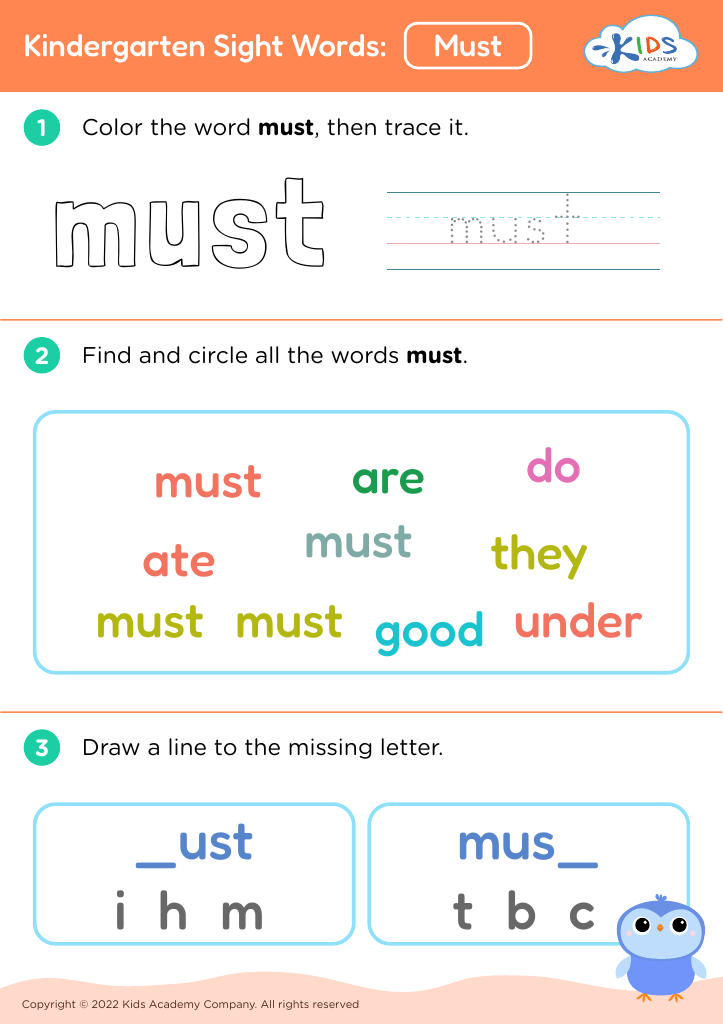Spelling practice Worksheets for Kids - Page 7
151 filtered results
-
From - To


Phonics and Word Recognition: Assessment 1 ELA Worksheet
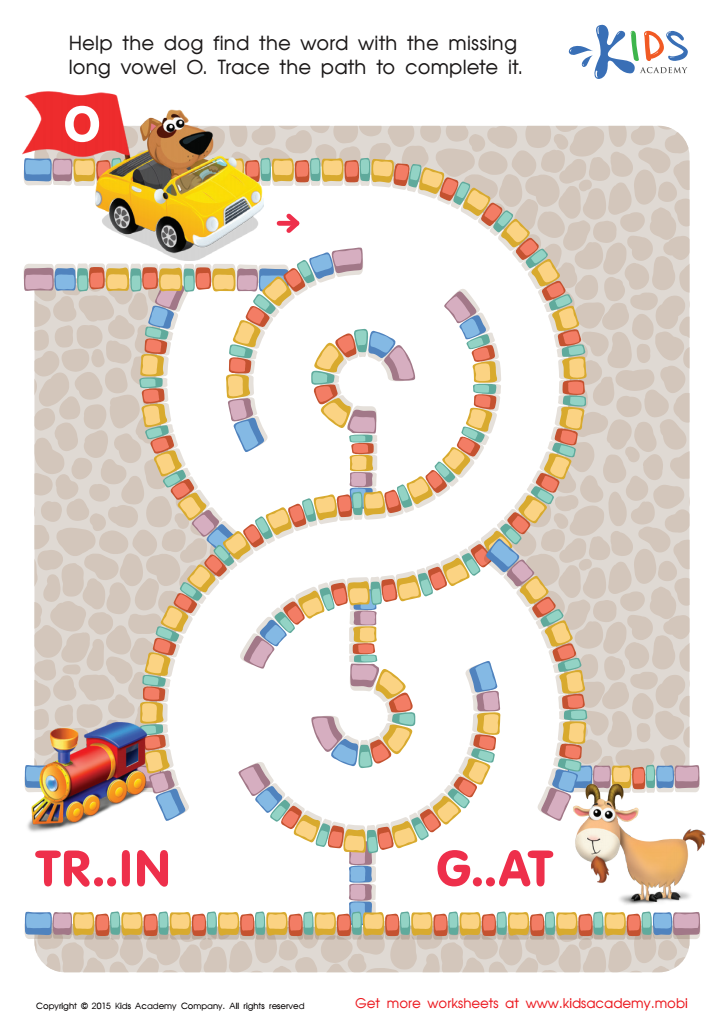

Long Vowel Sound O Worksheet
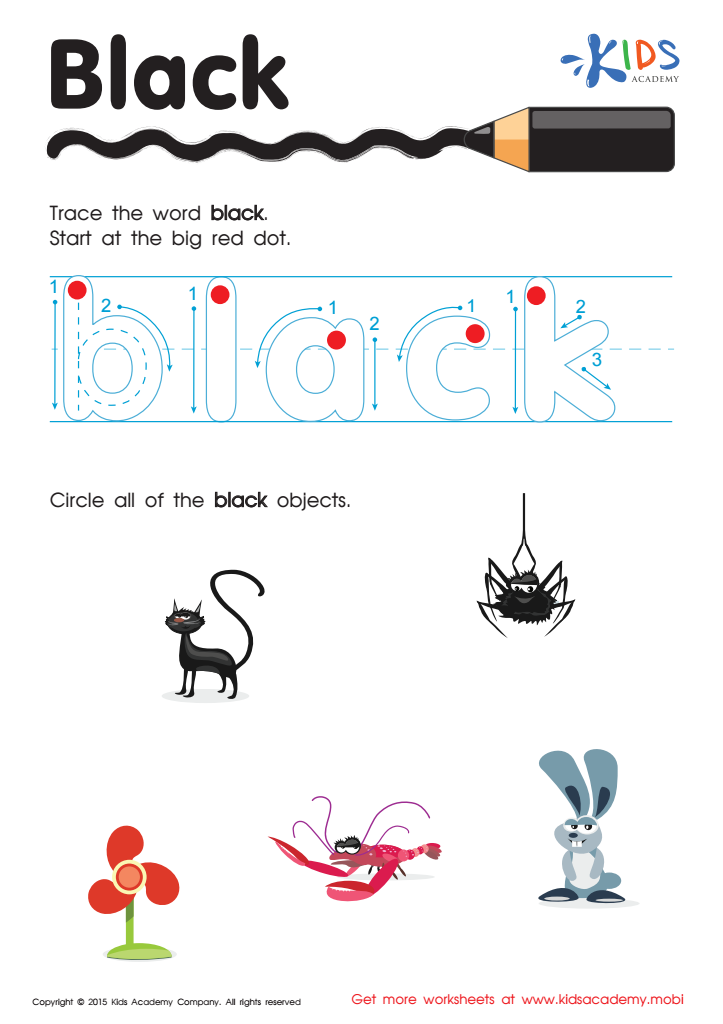

Black Tracing Color Words Printable
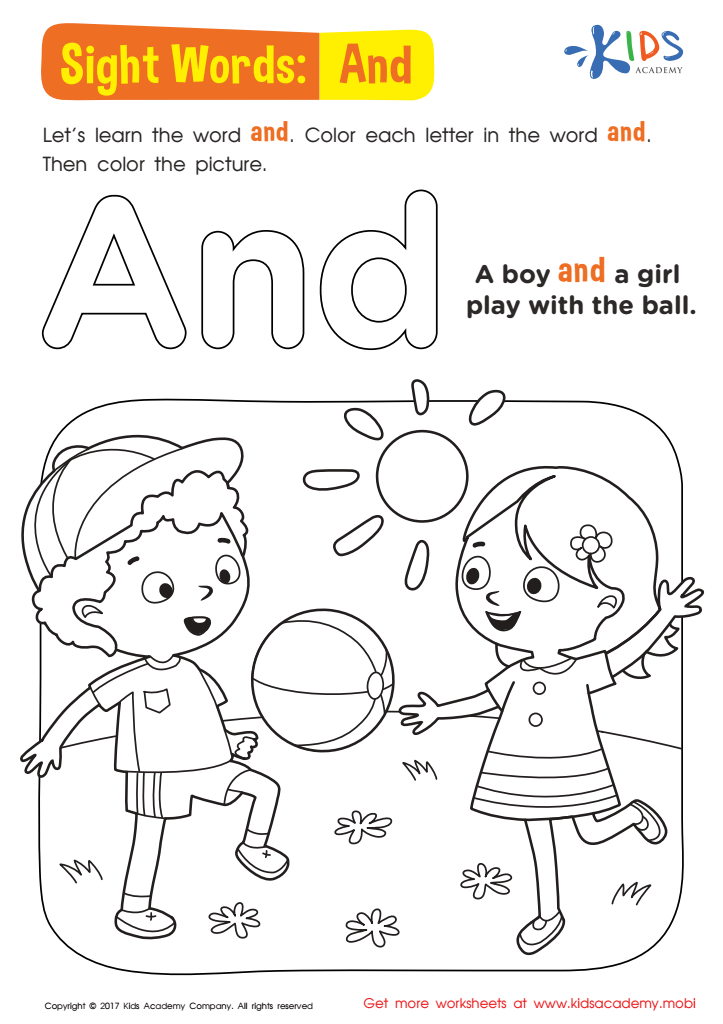

And Worksheet Sight Words Worksheet
Question/Answer
How does the mastery of the Spelling practice skill affect a student's performance at an early age?
The mastery of the Spelling practice skill at an early age significantly boosts a student's reading and writing abilities, enhances comprehension, and builds a robust vocabulary. Early proficiency in spelling also fosters confidence in language use, improves communication skills, and lays a solid foundation for academic success across various subjects by facilitating more effective study and learning strategies.
Why is the Spelling practice skill important for Kindergarten students?
The Spelling practice skill is important for Kindergarten students because it lays the foundation for reading and writing. It helps them understand the relationship between letters and sounds, aiding in word recognition and pronunciation. This early literacy skill boosts their ability to communicate effectively and fosters a love for reading, setting the stage for academic success.
How to train the Spelling practice skill in Kindergarten students learning about Building Vocabulary?
Incorporate multisensory activities like using magnetic letters, tracing words in sand, or constructing words with playdough. Practice with games like memory match or word bingo, and engage in daily reading and phonics exercises. Create a word wall for visual reinforcement, and encourage regular writing exercises, even if it’s simple sentences or lists, to apply their growing vocabulary in context.
 Assign to the classroom
Assign to the classroom
